DIGRESSIONE IPERTESTUALE N.10 (2004) for electronics (text by Daniele Federici)
Edition: Unpublished
Duration: 4 min
Dedication: Daniele Federici
Voiceover: Alberto Averini
First perf.: Bruxelles (Belgio), Musiques & Recherches, une saison acousmatique – Petit Théatre Marcelis, 24/2/2005
Composed in the middle of 2004, Hipertestual Digression n.10 for processed voice, was conceived as a radio project. The Kafkian setting and the irony of Daniele Federici allowed me to work on the narrative elements of the lyrics.
EXERCICES DE STYLE (2004) for electronics (text by Raymond Queneau, translation by Umberto Eco, Einaudi Edizioni)
Edition: Unpublished
Duration: 10 min.
Voiceover: Alberto Averini
First perf.: Venezia, Sala Concerti Conservatorio di Musica, 27/5/2010
Luigi Ceccarelli, electronics
Written at the end of 2004, immediately after Digressione Ipertesrtuale nr. 10, Exercices de style for computer-generated voice sounds, represents my Didploma in Electroacoustic Music Composition. The famous Queneau text, expertly translated in italian by Umberto Eco, allowed me to develop a work of a radio nature, based on the variation criterio.
At the initial Notations, exposed by the single voice of Alberto Averini, four different variations follow: Aferisi (apheresis), Analisi Logica (logical analysis), Parole Composte (compound words) and Telegrafico (telegraphic).
MEDUSA (2017) original music and sound design for the homonym theatrical performance
Edition: unpublished
Duration: 40 min.
First perf.: Napoli Sotterranea, Vico Sant’Anna, Napoli
Paola Daniele, performance
Andrea De Carlo, dramaturgy
Cesare Saldicco, sound design
Medusa is an initiation rite, a vertiginous catharsis in the bowels of the earth up to the sources of the feminine, a smiling and subversive action that reveals the “sex of woman”.
The double castrating and mocking face of the Gorgon is a symbol of a femininity that aims to integrate the lack and limit and transform them into the pleasure of pro-creation.
Starting from a direct action writing, the performance Medusa wants to recover a body confiscated from the patriarchal and misogynistic culture, expose the removed, the breaking of the boundaries of one’s self, provoke an offense to modesty, because it is “time to free, knowing and loving it, the New from the Old, to get away from it, to overcome the Ancient without delay, going beyond what will be the New, as the arrow leaves the arch, combining and dividing musically the waves of a single trait to be more herself” (H. Cixous, Il riso della Medusa, Bologna 1997).
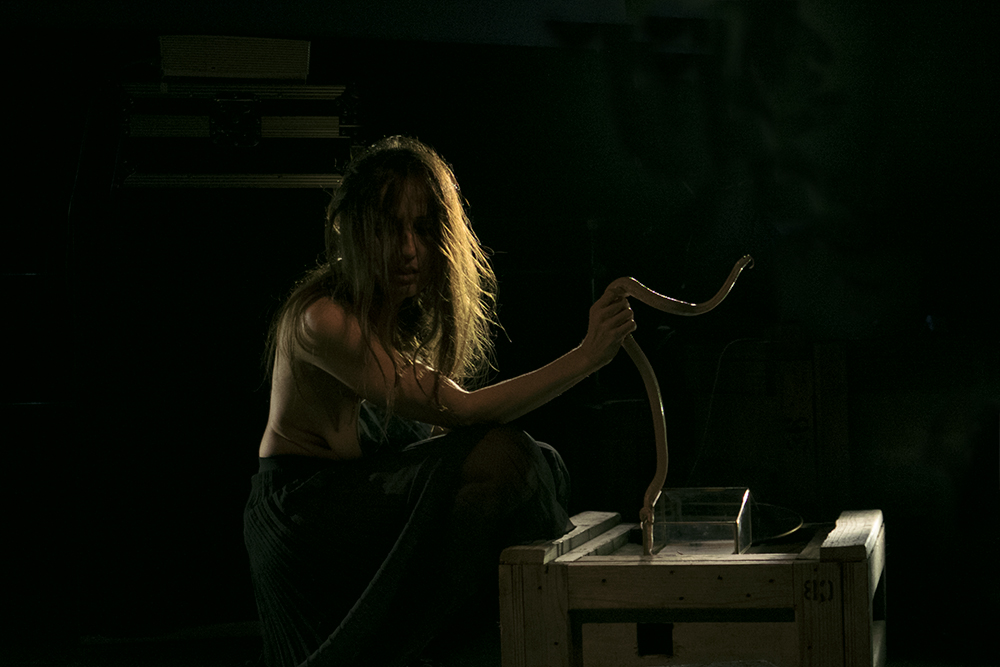
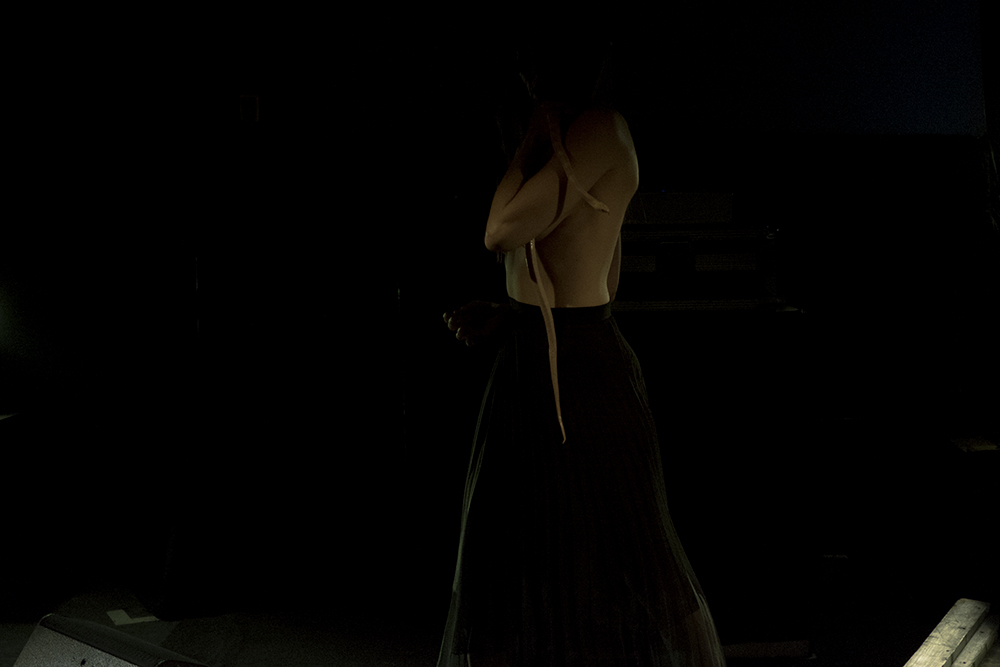
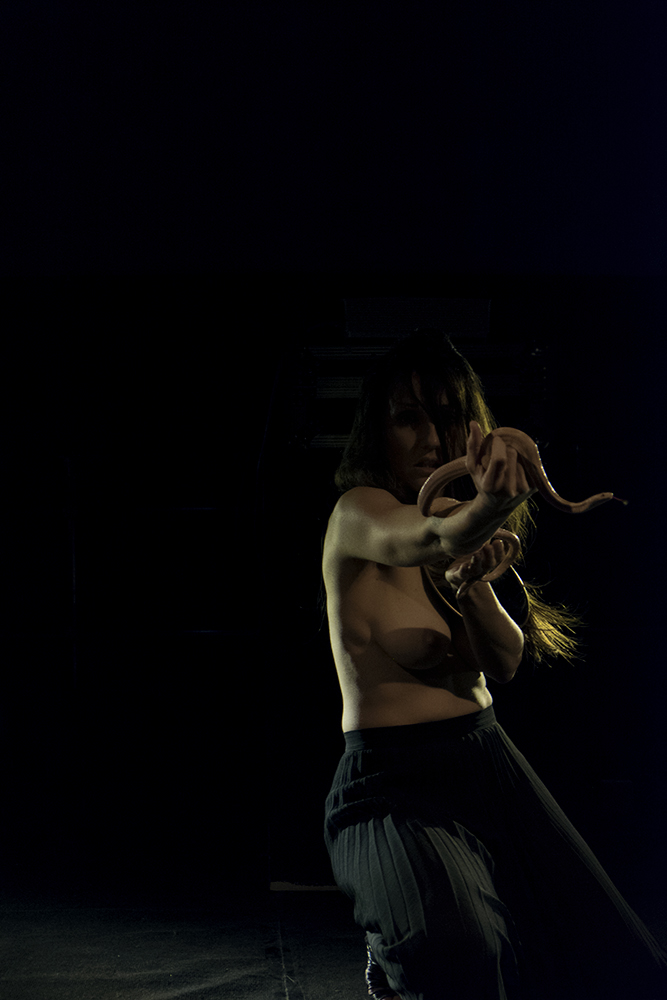
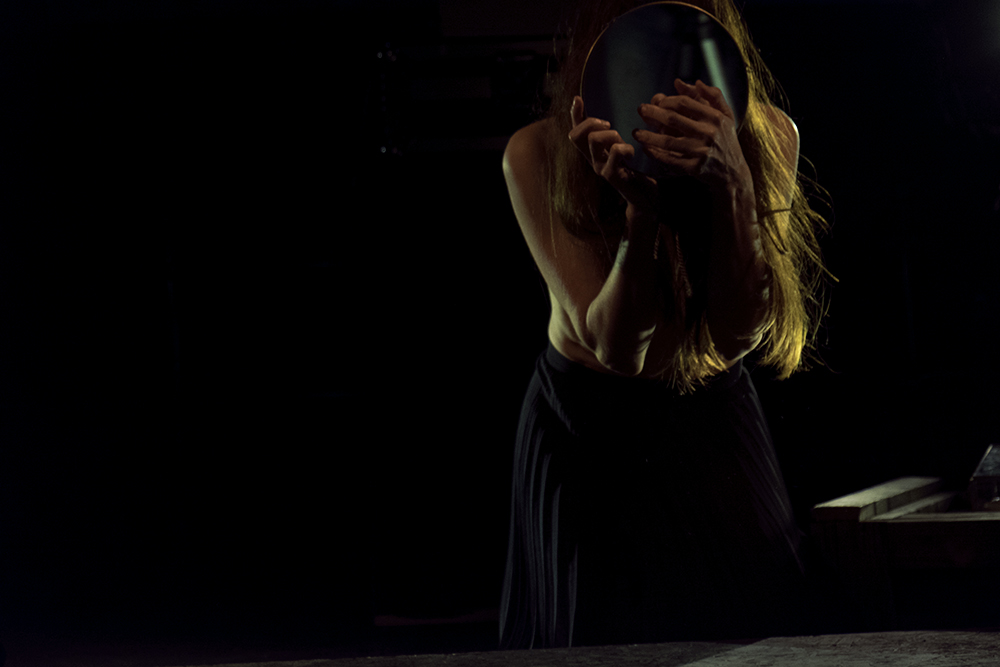
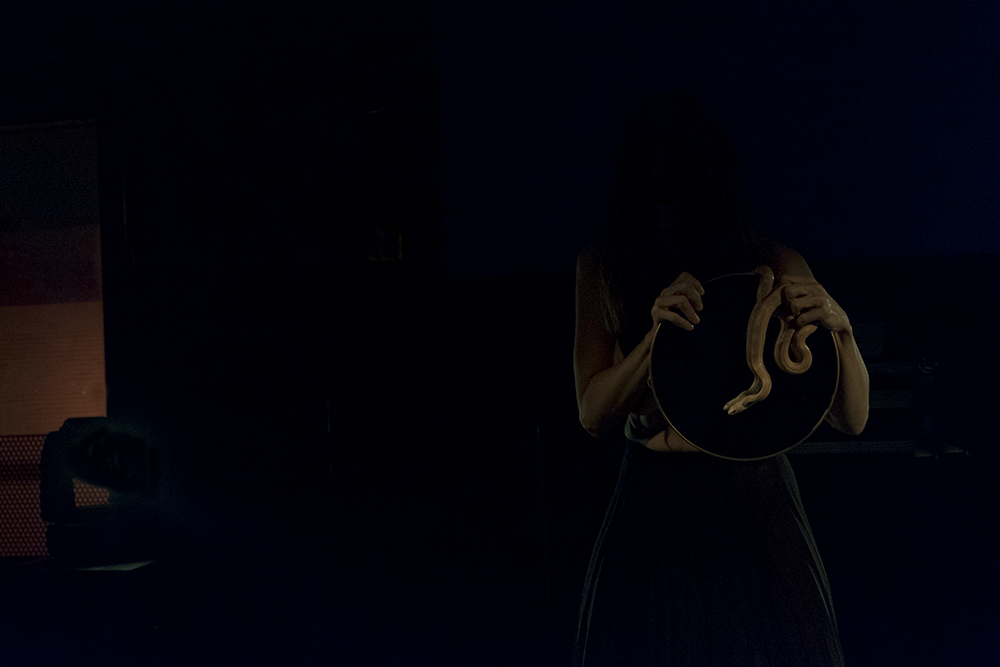
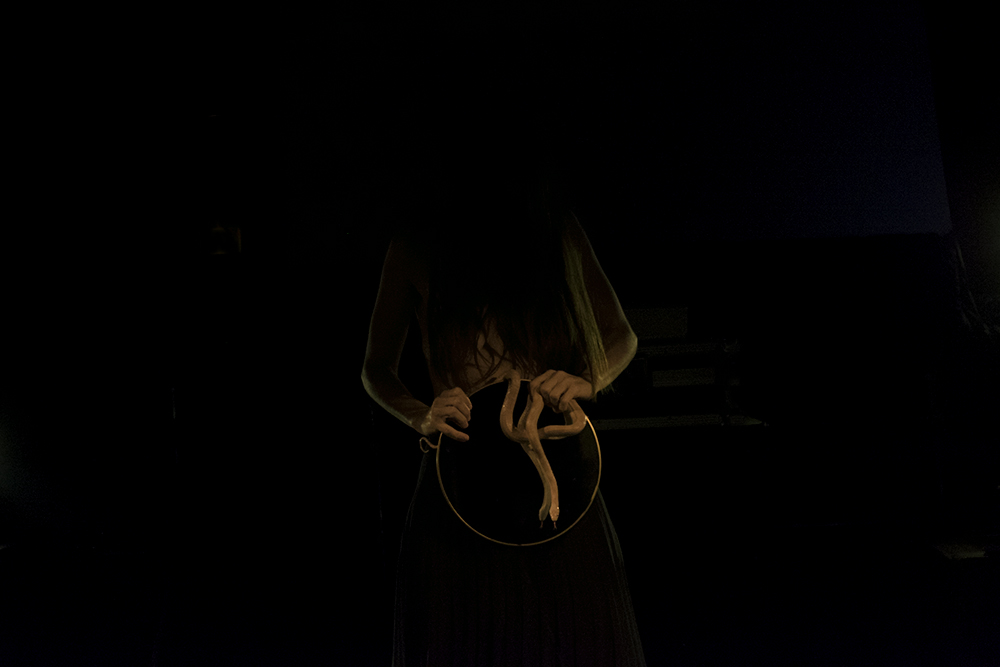
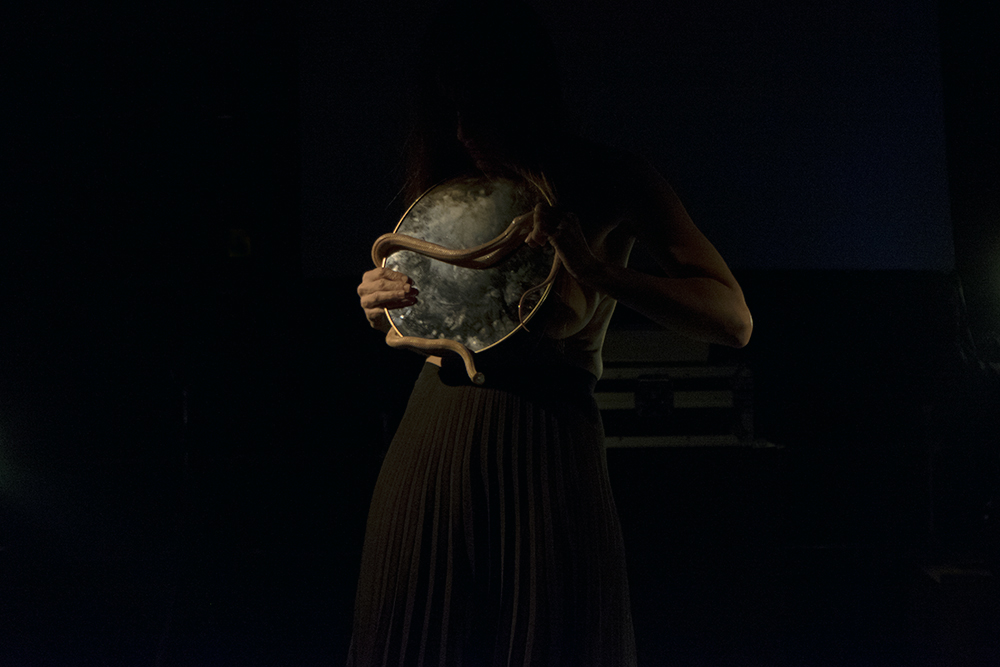
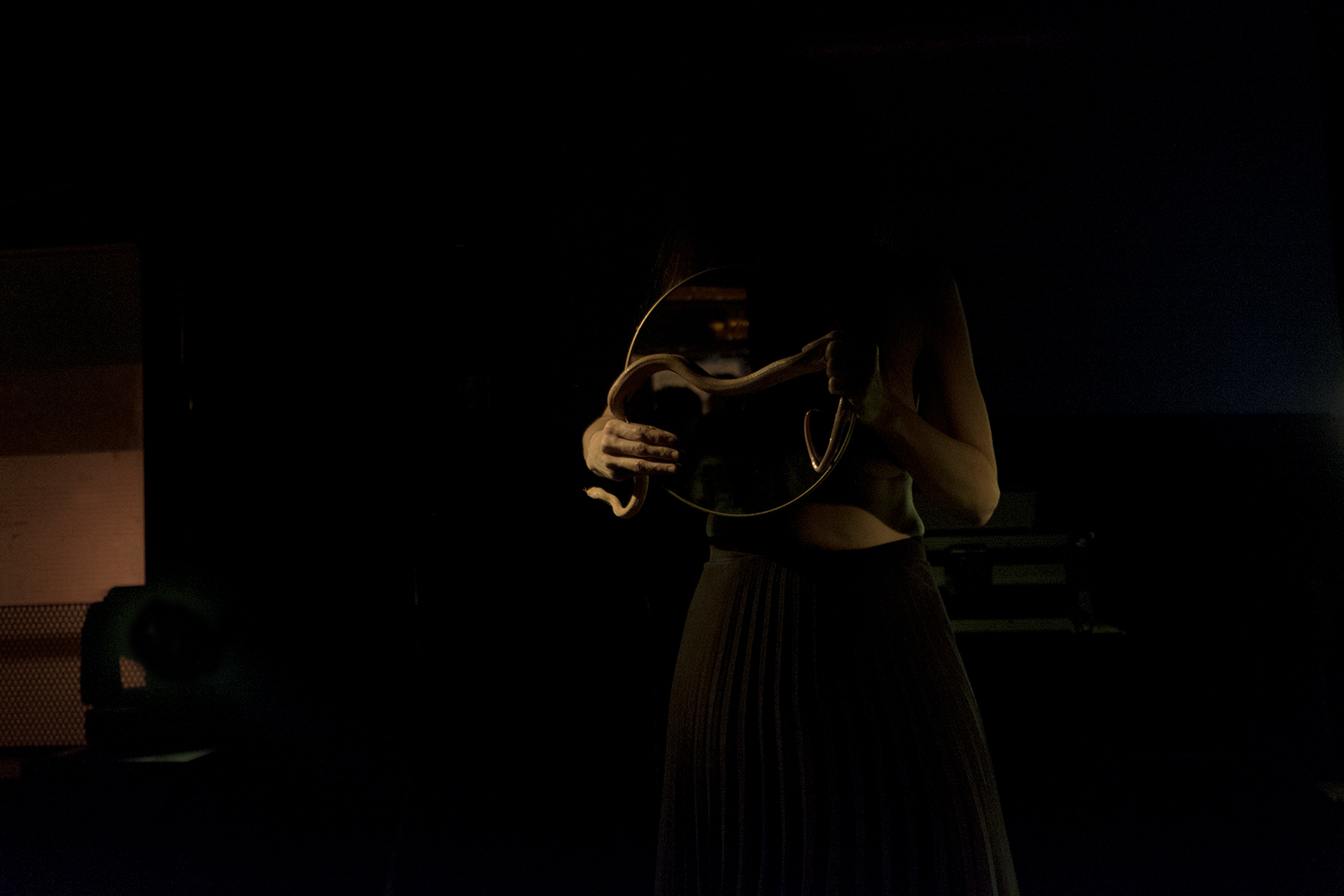
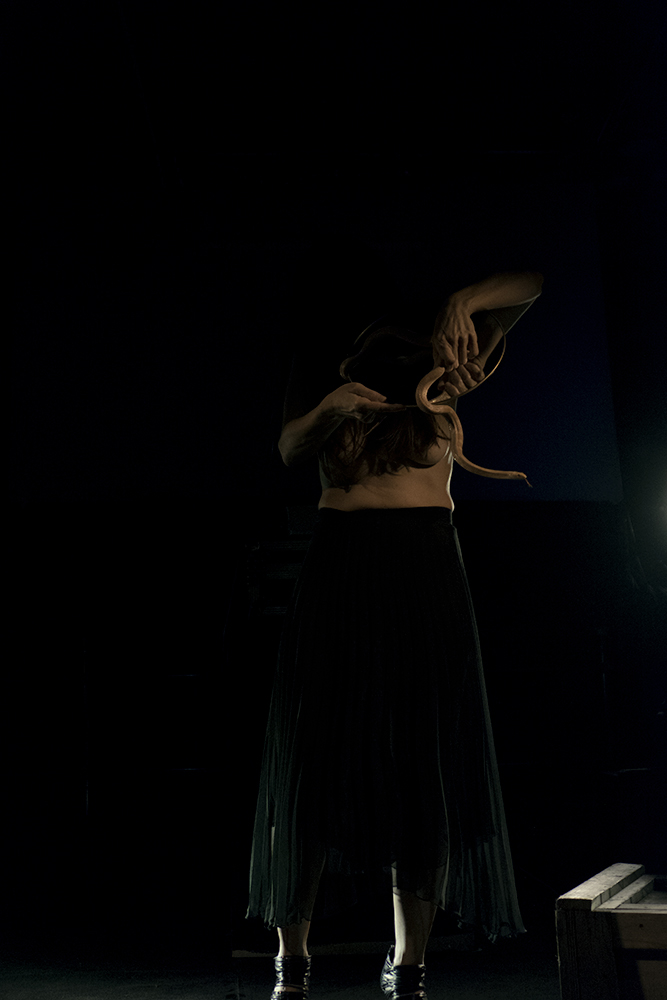
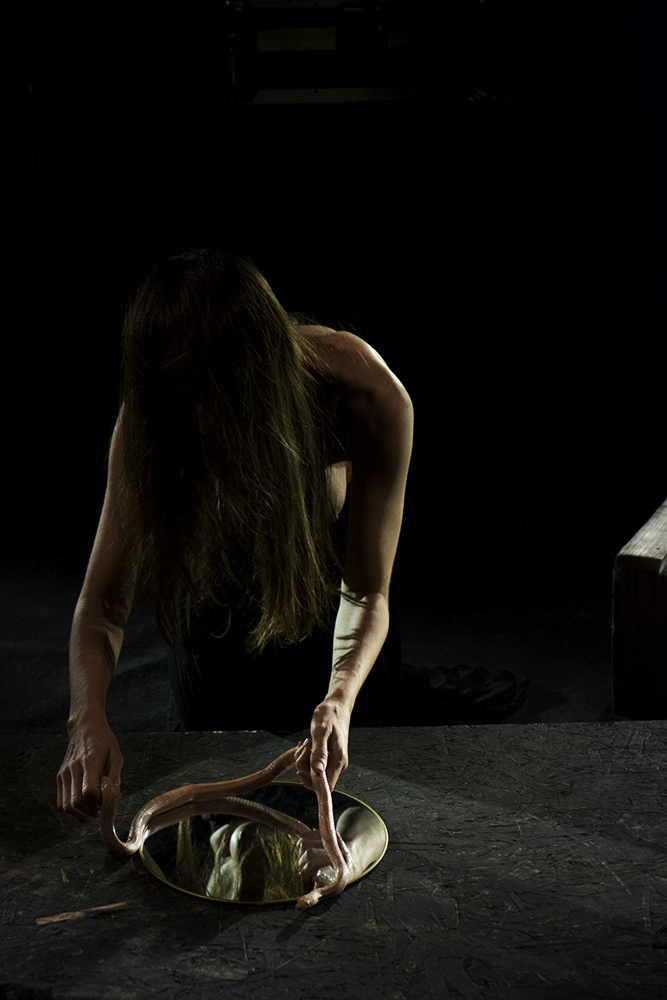
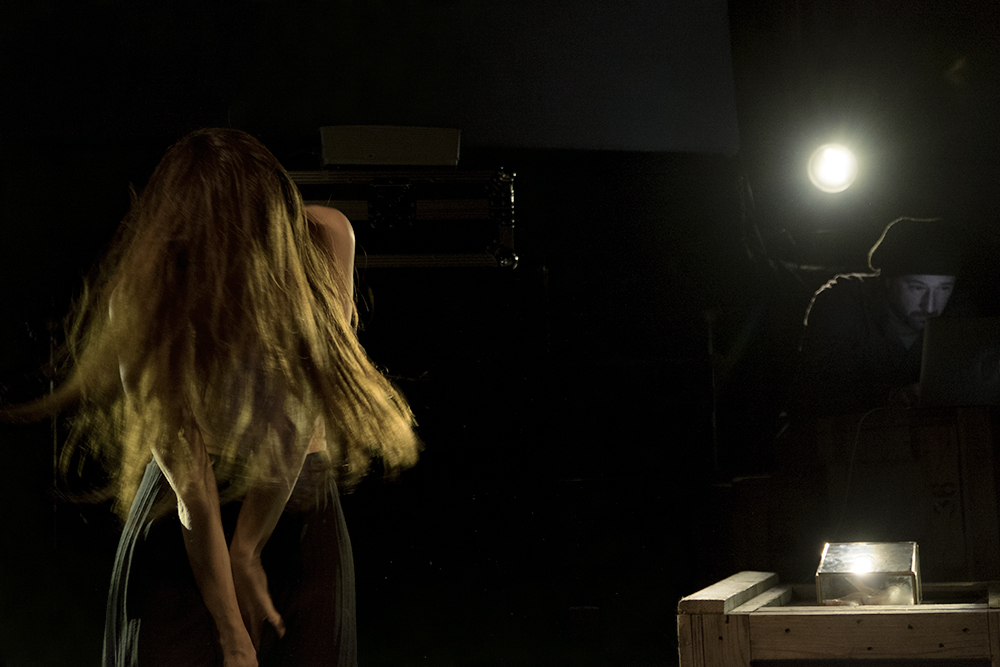
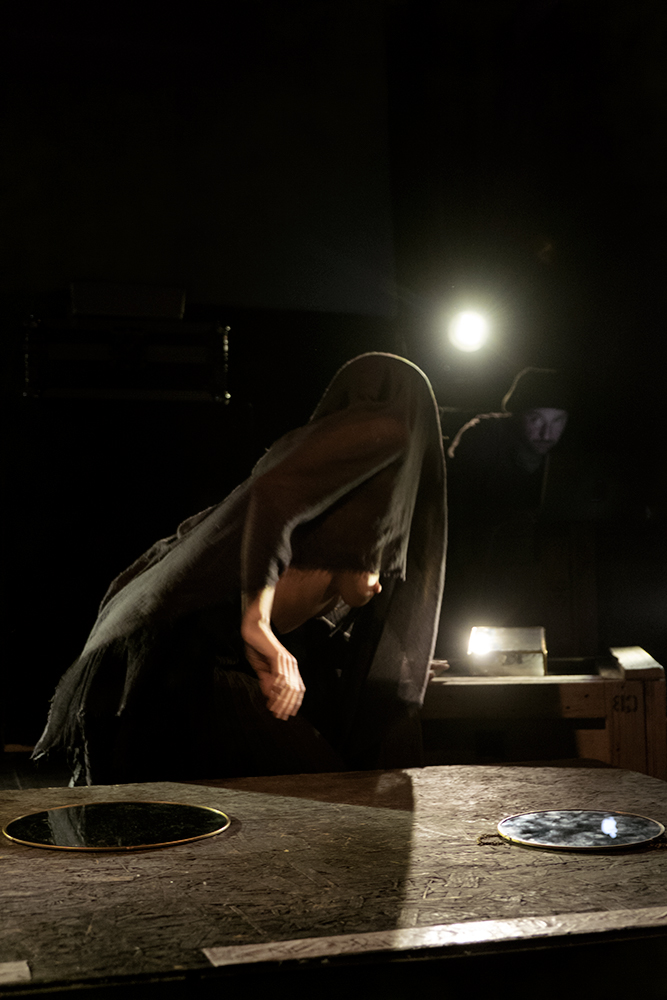
SPIRE V (2011 rev. 2017) acousmatic version for 8 channels diffusion
Edition: Edizioni Sconfinarte, Milano
Duration: 8 min.
Commission:Nùcleo Ensemble
First perf.: 20/08/2017 Teatro da Reitoria, Curitiba, Brazil
Felipe de Almeida Ribeiro, electronics
Spire is a research and writing project started in 2009 and dedicated to the solo instrument with or without electronics, declining in all its aspects – from formal processes, to syntax elements, to idiomatic language – the concept of spiral; not only as a mere mathematical representation, but as an inspiration of an aesthetic nature and an element of philosophical speculations.
Spirals become formal metaphors of different musical subjects – especially in terms of timbre and directionality – that in common preserve the reading and rereading of the sound material and that lead, both the composer and the listener, in a dimension of incessant research, as suggested by the Latin phrase eadem mutata resurgo, exploring in depth the infinite labyrinths of the psyche, ego, consciousness, spirit, Self.
Starting from this experience, the composer has developed assisted composition algorithms first in OpenMusic, later in Max/MSP environment, for the formalization of spiroid reading processes of complex strings, which have allowed a rapid and effective verification of the procedures adopted.
BUTTERFLY EFFECT (2024) ACOUSMATIC FOR 2 CHANNELS DIFFUSION
DURATION: 10 MIN.
COMMISSION: /
FIRST PERF.: 21/04/2024 SALA PUCCINI, MILAN
CESARE SALDICCO, ELECTRONICS
In 2024, an important anniversary dedicated to one of the most beloved Italian composers of all time will be celebrated: Giacomo Puccini.
Butterfly Effect is a composition that revolves around the citation of themes taken from Puccini’s opera, reworked, assembled, and influenced by a simple question: what if Madama Butterfly had not killed herself? This hypothesis leads us to reflect on the potential ramifications and the different directions that the story of the young Japanese geisha could have taken if its main events had been altered. Imagining an alternative ending where Butterfly decides to face reality and pursue a new path in life, the work poses questions such as: how would her relationship with Pinkerton have developed? How would it have influenced her relationship with her son? And what impact would it have had on her experience of emigration and adaptation to a foreign culture?
Without the tragic choice of suicide, the plot of Madama Butterfly could have taken an unexpected turn, opening up new scenarios and conflicts. The hypotheses – exercised through the theory of the so-called butterfly effect – invite us to explore the infinite possibilities of an alternative story, offering us, at the same time, the dramatic power and deep reflection that Madama Butterfly’s tragic choice provides.

